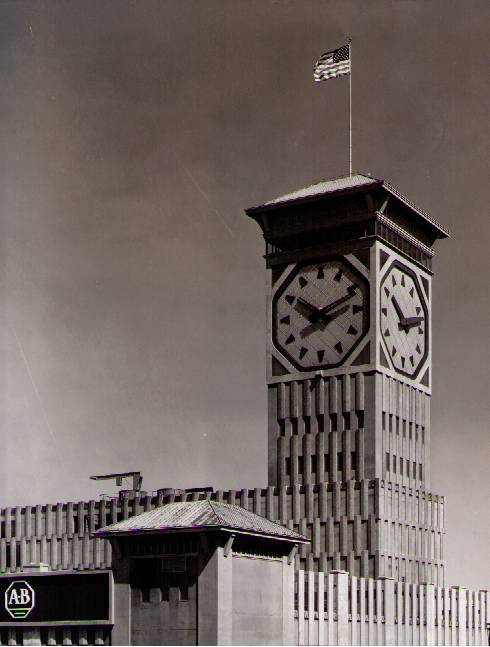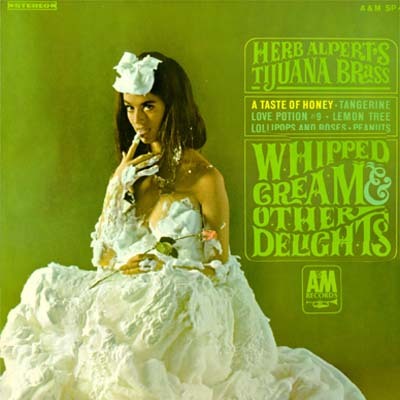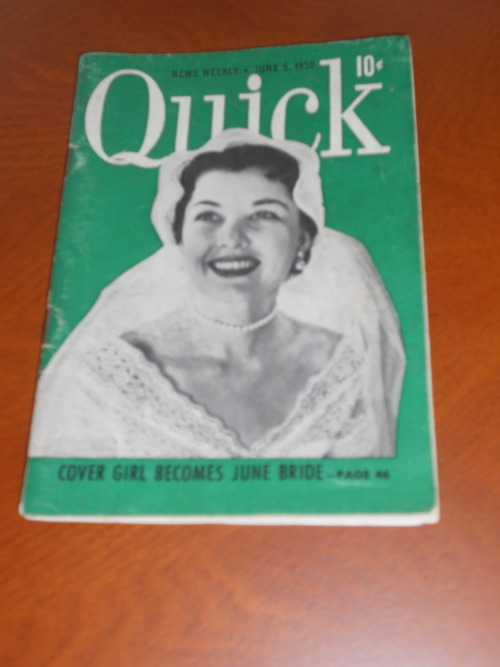Time for Milwaukee

Jan. 25, 2011—
The large antique mall in the northern shadow of Milwaukee’s four-sided Allen-Bradley clock was filled with people. It made Frankie Snuggs uneasy.
His space was being invaded. These were his memories: the Herb Alpert and Tijuana Brass LPs you always find in thrift stores, the postcard of a one level Holiday Inn in Key Largo where he recalled a sunset version of “Come Monday,” the irony of a paisley shirt from the 1970s.
Time stands still for Frankie Snuggs.
He still wears paisley shirts. For real.
But even the four-sided clock had changed on him. Up until last summer Milwaukee’s “Polish Moon” had been the tallest four-sided clock in the world. It lost its title to some new tower in Saudi Arabia, of all places.
“Not even Chicago,” Frankie thought. He thought about all this on the drive over to the three-story mall in an old factory. He reflected while driving, especially when listening to music. Frankie didn’t care for talk radio because it made him think too much. He heard someone talk about the “Modern Love” column in the New York Times where a divorced woman wrote about how her ex-husband is still the person she wants to come home to, tell her stories to and share her life with. This made him think sad.
Frankie turned to sports talk but everyone was talking loud about the Bears and the Packers. “Never used to be this way,” he mumbled. “Hyper-bolee used to follow the action instead of dictate the action.”

Frankie went to Groppi’s Food Market for sustenance. The small market has been in the same Bayview neighborhood south of the four-sided clock since 1946.
Maybe the intimacy of the supermarket is what Frankie was missing. Strangers looked him in the eye.
He purchased a fresh cinnamon scone with big juicy raisins. He bought some whipped cream for the Key Lime pie that has been in his freezer since New Year’s Day.
Maybe the mall would have been less crowded had he not spent so much time daydreaming at Groppi’s. As Frankie grew older he found himself making second guesses like that.
Gus is Frankie’s best friend and oldest friend. On the recent occasion of Gus’s birthday he laid out options that Frankie had already been contemplating.
“You can be crazy the rest of your life or you can settle down,” Gus said.
Frankie was quiet. Craziness grows in the fields of solitude.
He scratched his head then asked, “What’s the difference between crazy and courage?”
A large man with fuzzy Dickens sideburns and a large woman wearing a floppy red smock had pulled up small chairs to the mall’s postcard collection that Frankie liked on previous visits. People strolled by as wandering souls searching for past connections.
The couple was settled in. Their coats were off and it looked as if they were not going to leave any time soon. In back and forth harmony they picked out obnxious cards of cupids, flowers and pretty birds. It took them a lot of time. Frankie thought, “There’s postcards of Mexico, Holland, New York and Henry Aaron and they’re excited about this?”
The middle age guy found a yellowed postcard of a cherub with an arrow. Frankie was embarrassed to look at the card. He guessed they were shopping for Valentine’s Day.
“I think we have this one,” the sideburns guy told the large woman. The woman confirmed his belief as she had done for so many years and they returned to thumbing through postcards. These two were on a mission. The rhythm of flipping cardboard clicked like a train pullling out of a station.
Frankie only bought a couple of postcards.
His best purchase of the day was a tattered copy of “Quick,” a small news magazine from June 5, 1950. “Its about the size of an 8-track tape,” Frankie pointed out to a passerby. He thought the retro-reference made sense. The short articles in Quick” caught his eye.
They were snapshots of the future:
EDUCATION:
“The largest (500,000) graduating class in U.S. history began to pour from college campuses. The Labor Dept. said job chances are good in the fields of nursing, grade-school teaching, medicine, social work; not so good in engineering, law, journalism, personnel work.”
FOOD:
“Babies seemed to enjoy a new banana-flavored macaroni product, quick-cooking pastina (Prince Co.’s small beads of macroni), top serve with butter and/or milk as an easy-on-mother lunch or supper dish. Variations: beet, carrot, spinach pastina.”
“Quick” was 1950’s Twitter with common sense.

Frankie paid $2 for what was basically a 64-page pamphlet. The great thing about the mall is that the staff places a purchase—as small as the issue of “Quick”— on a freight elevator and dispatches it from the third floor to the check out counter on the first floor.
Frankie’s trip ended with a bottle of Point beer at the Palm Tavern, a tiny dive bar in the Bayview neighborhood. It wasn’t Frankie’s idea to meet at the Palm but the atmosphere turned out to be perfect for him. The walls were filled with framed sheet music of 1960s soul stars like Jerry Butler and plaster female breasts adorned the south wall.
The bartender knew of the long-gone Mean Mountain Music down the road, a vinyl emporium run by some rockabilly cats who had a hidden section of X-rated ’45s and Klan singles on the REBEL label out of Crowley, La.
His friend Jennifer Eckles suggested the Palm.
He had last seen Jennifer in mid-summer when she started dating a guy who worked at the grocery store across from her apartment in North Milwaukee. When he walked into the Palm just last week she said, “Meet my fiance,” and she laughed. “I never thought I’d get married.” Jennifer is 28 or 29, younger than Frankie.
Frankie sensed the couple’s simpatcio and was happy for them. He also liked the fact that her fiance had a 90 pound dog named Reba.
It was time to leave.
Frankie walked across a snow drift as Jennifer and her boyfriend walked across the street to another bar. “Wish you all the best,” Frankie shouted.
He got in his car and saw the four-sided clock in the rear view mirror.
He wondered when he last sent anyone a postcard.




Leave a Response